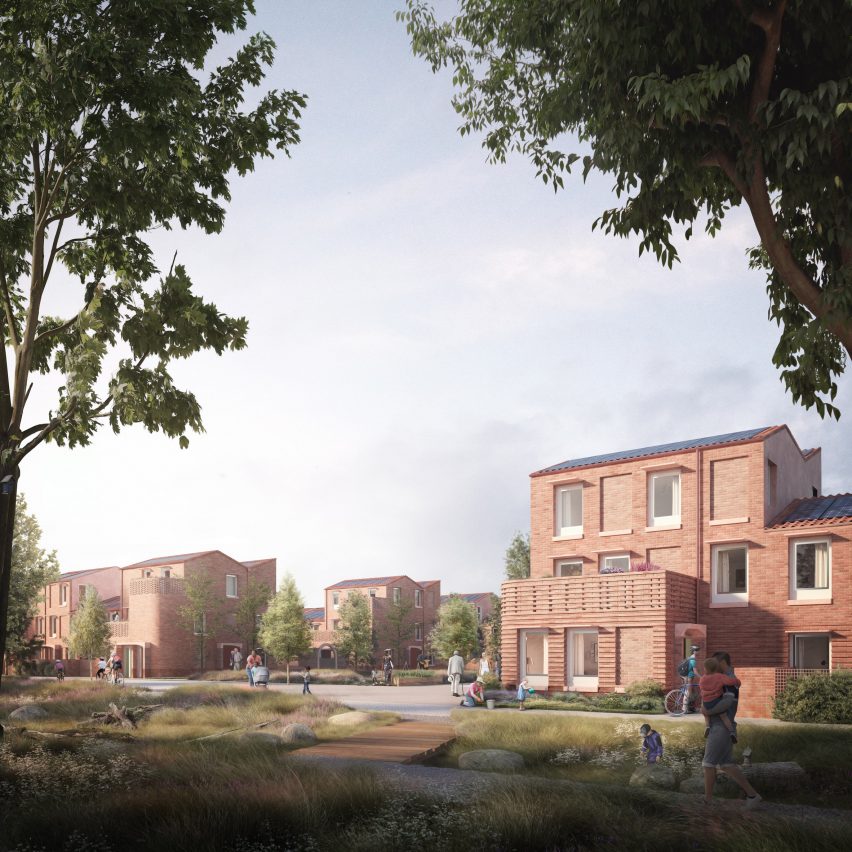
Stirling Prize-winning studio Mikhail Riches has unveiled details of the low-rise Passivhaus housing it is designing in York, UK, which will be net-zero carbon when in use.
The scheme is being developed by Mikhail Riches for the City of York Council's Housing Delivery Programme and will encompass seven sites across the city.
With over 600 homes set to be built, it will become the largest Passivhaus and net-zero carbon housing scheme in the country.
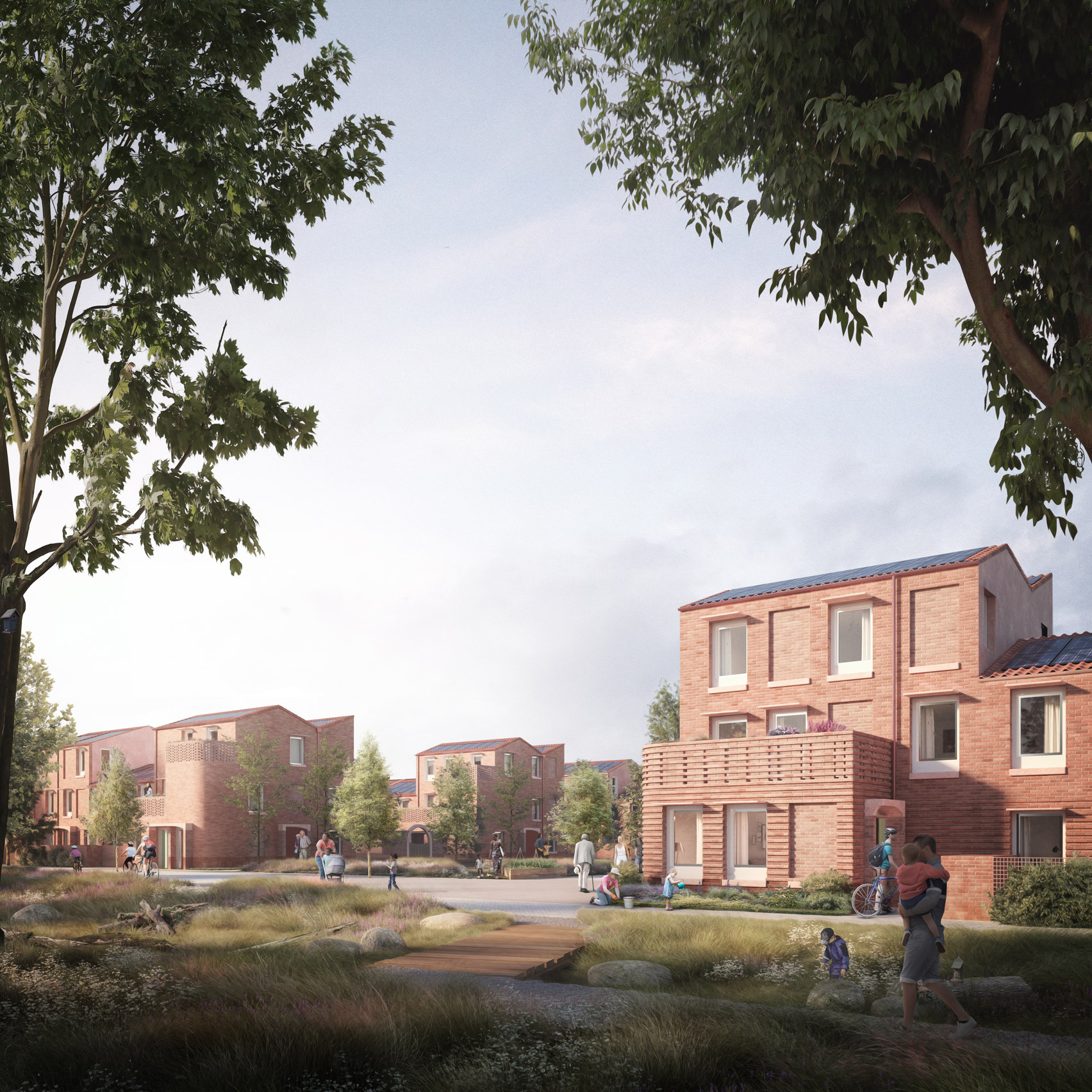
London studio Mikhail Riches' goal for the Housing Delivery Programme is to provide affordable homes with low-energy bills and encourage residents to live low-carbon lifestyles.
This will be achieved through energy-efficient designs and the use of renewable energy technologies, alongside the provision of sustainable transport methods and allotment space for residents to grow their own food.
"The developments are really trying to promote a low-carbon lifestyle through low car ownership, sustainable transport methods and food growing," project architect Sophie Cole told Dezeen.
"This allows for landscapes to focus on people rather than cars, we're providing ample space for bike storage, growing opportunities, and spaces for children to play safely and communities to meet."
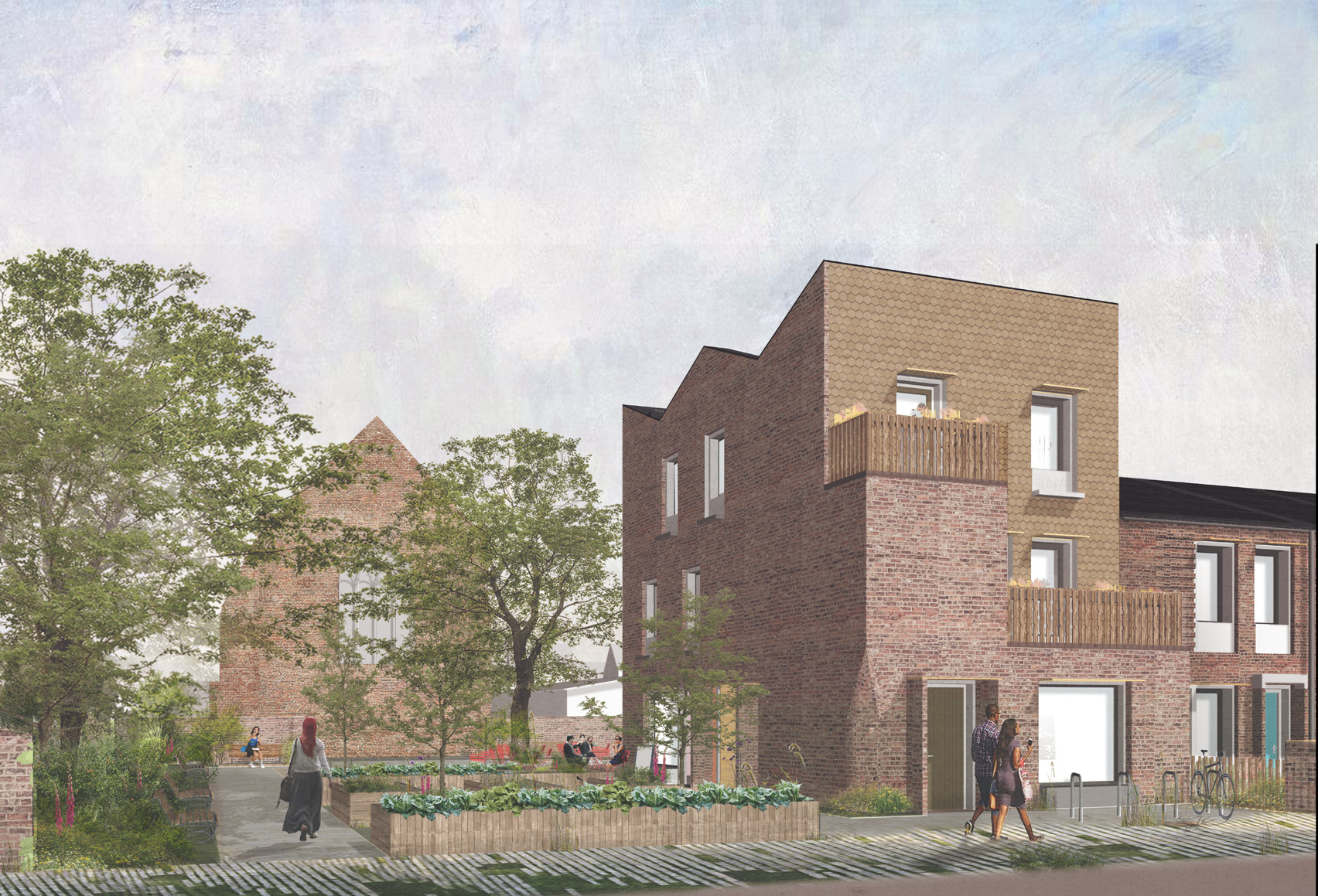
Mikhail Riches is currently in the process of developing three sites of the sites, two of which have been submitted for planning.
They will have a range of one to five beds dwellings, provided through flats and low-rise houses with a range of accessibility levels.
There will also be multi-generational dwellings that have an attached, self-contained space for elderly relatives or younger family members seeking independence.
The numbers of different dwellings across the sites depends on their area and the specific needs of the immediate communities, identified through public consultations. They do, however, all utilise the same passive solar designs and rigorous Passivhaus energy standards, like its Stirling prize-winning Goldsmith Street in Norwich.
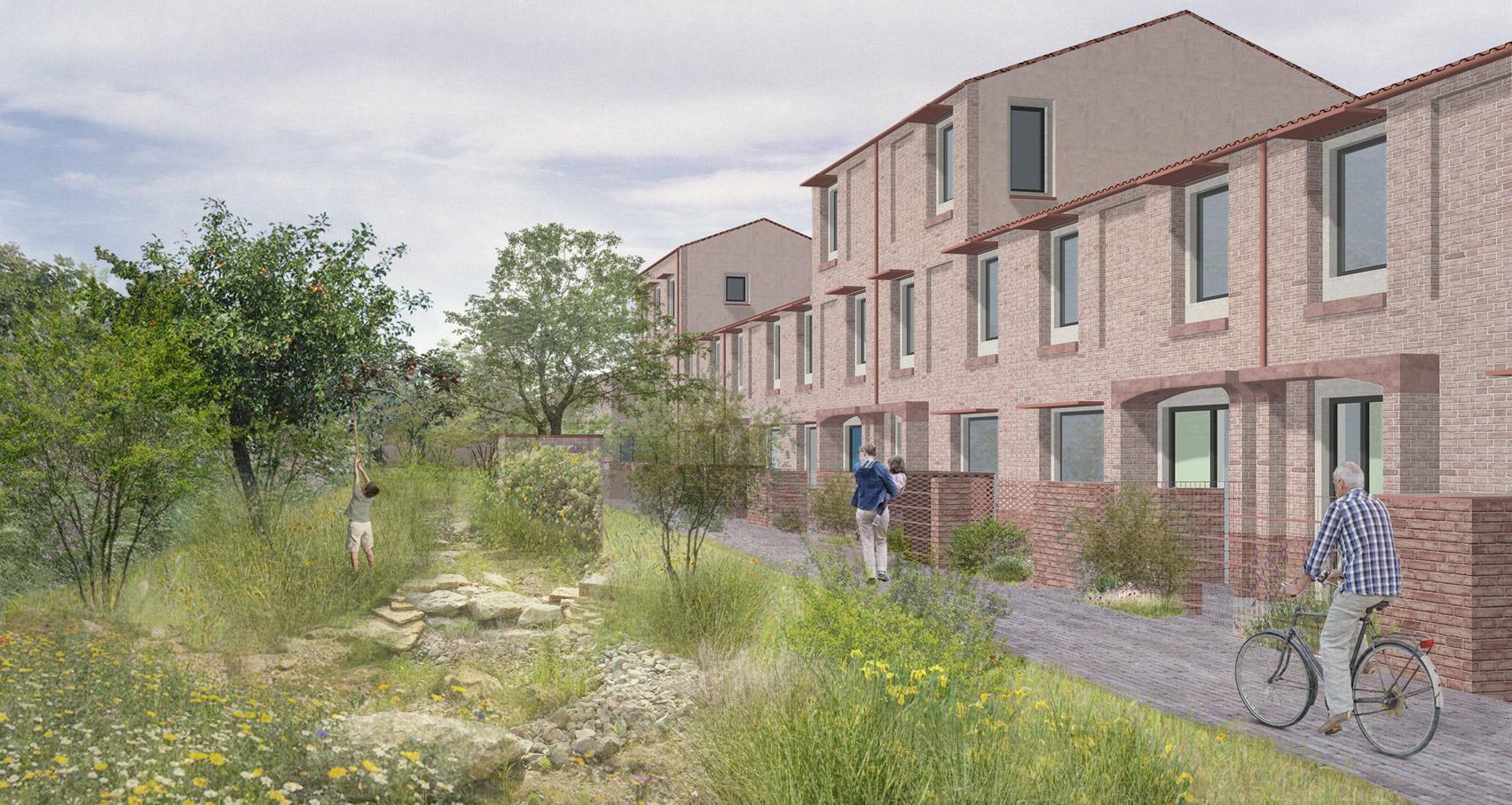
"Similarly to Goldsmith Street, one of the key principles is that it's a passive solar scheme," Cole explained. "We're trying to get elevations facing south where possible in order to achieve Passivhaus in a cost-effective way."
Passivhaus is an international energy performance standard intended to dramatically reduce the requirement for space heating and cooling.
This forms a foundation for the studio to then make the developments net-zero carbon in operation, through the use of air-source heat pumps and photovoltaic arrays on rooftops.
"All the developments will be zero-carbon in operation, which means each development will generate as much energy per year as the development requires per year," Cole said.
"Passivhaus provides a great basis for this because Passivhaus already really reduces that energy requirement."
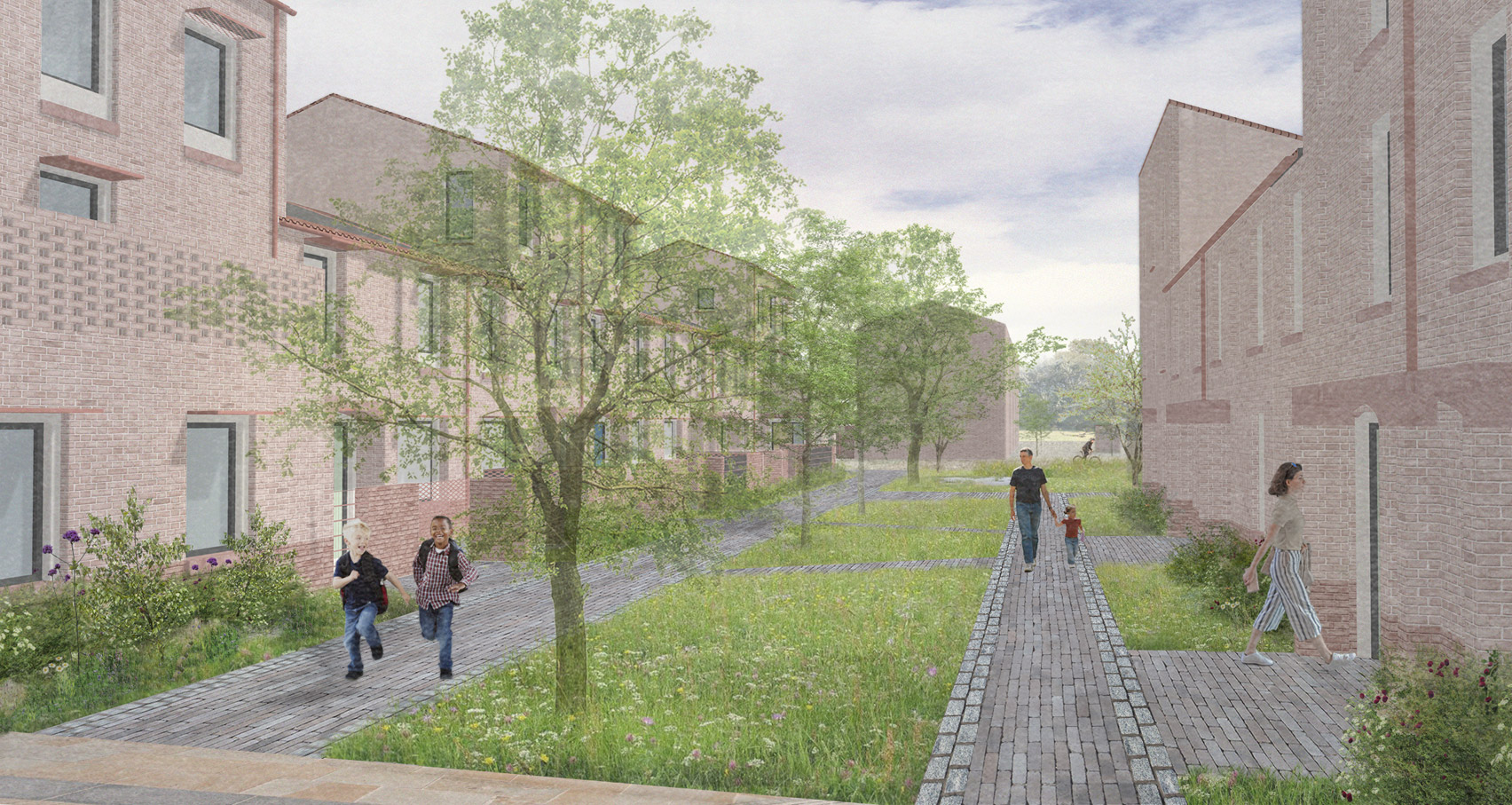
Other elements of the scheme that Mikhail Riches has borrowed from its Goldsmith Street scheme include the contemporary interpretation of terraced streets and the use of deliberately simple materials like brick, render and tiled roofs.
The aesthetic of each Housing Delivery Programme site will be tailored to suit its immediate context, with some featuring unique details that pay homage to features of nearby buildings.
Mikhail Riches' landscape design will ensure most dwellings across the Housing Delivery Programme have private outdoor space. All of them will have access to semi-private and public green areas that encourage interaction between residents.
This will be possible because of the studio's early decision to design the landscapes around people, banishing car spaces to the perimeters of the site.
"Most people will have their own private space, but there'll also be shared external spaces similar to the ginnels that were between the back gardens on Goldsmith Street," Cole explained.
"We'll also introduce as much opportunity for growth in numbers as possible, whether that's fruit trees, or raised beds – small scale productive landscapes for all the residents to get involved in."
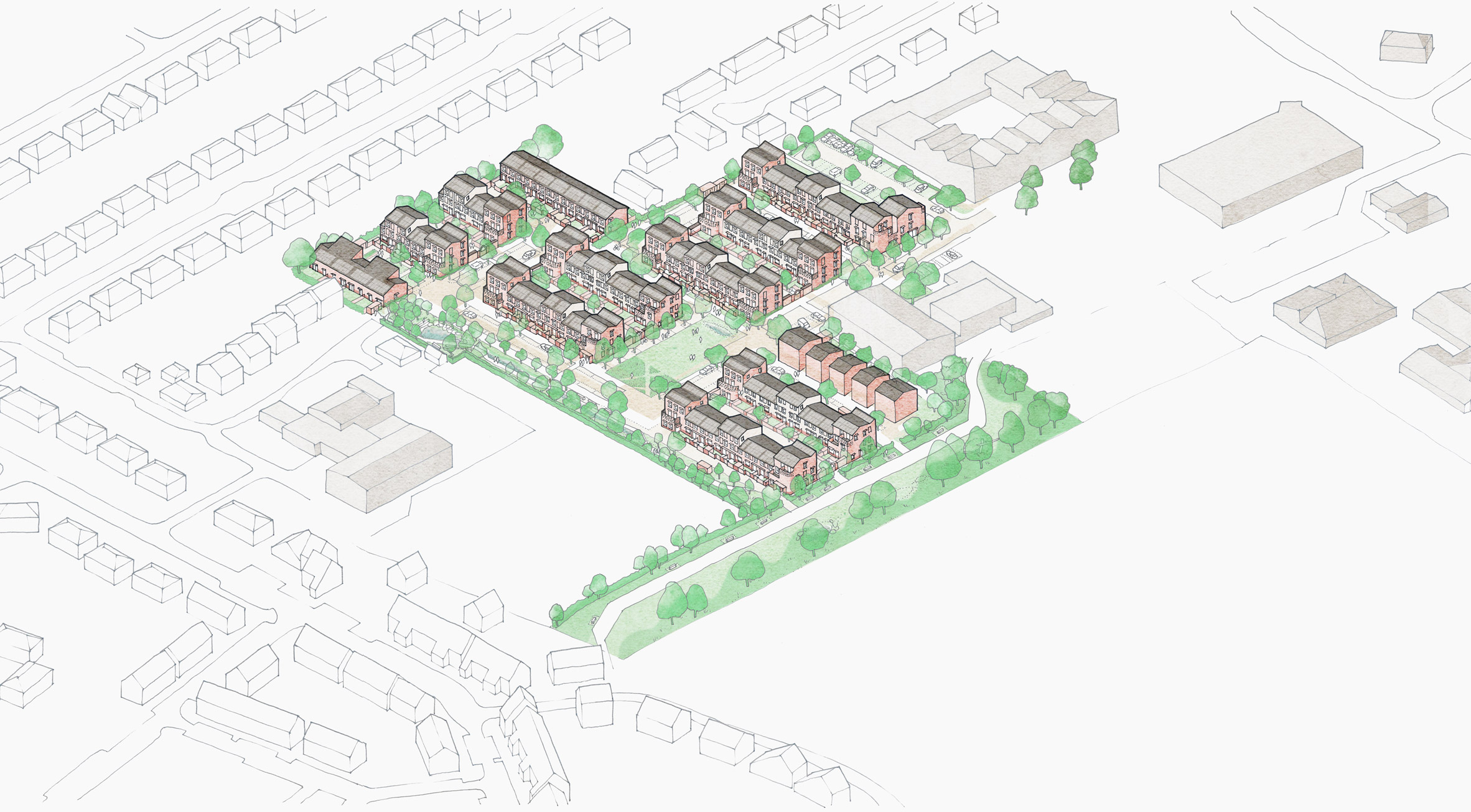
Though the scheme will not be carbon-neutral in terms of embodied energy, Mikhail Riches is continually monitoring how these emissions can be reduced or offset.
Embodied energy refers to the carbon dioxide generated through the construction of a building, including the extraction, processing and transporting of building materials.
"We are measuring embodied carbon on these projects and looking to base some of our design decisions on the outcomes of that embodied carbon analysis," Cole said.
"We're also looking to improve the embodied carbon as the programme progresses, so we will make improvements from site to site if possible."
Her words echo those of the studio's co-founder, Annalie Riches, who told Dezeen that "as a practice, we don't want to do anything that doesn't aim for zero carbon now".
Mikhail Riches is a London architecture studio founded by Riches and David Mikhail, who were formerly directors of the practices David Mikhail Architects and Riches Hawley Mikhail Architects.
In 2019, the studio was awarded the Stirling Prize for Goldsmith Street – a scheme with 105 low-energy homes designed with Cathy Hawley for Norwich council. It was hailed by RIBA president Alan Jones as "a beacon of hope" in the face of the climate emergency.
Visuals are by Darcstudio unless stated.
The post Mikhail Riches releases visuals for carbon-neutral housing scheme in York appeared first on Dezeen.
https://ift.tt/2Il35Lu
twitter.com/3novicesindia
No comments:
Post a Comment